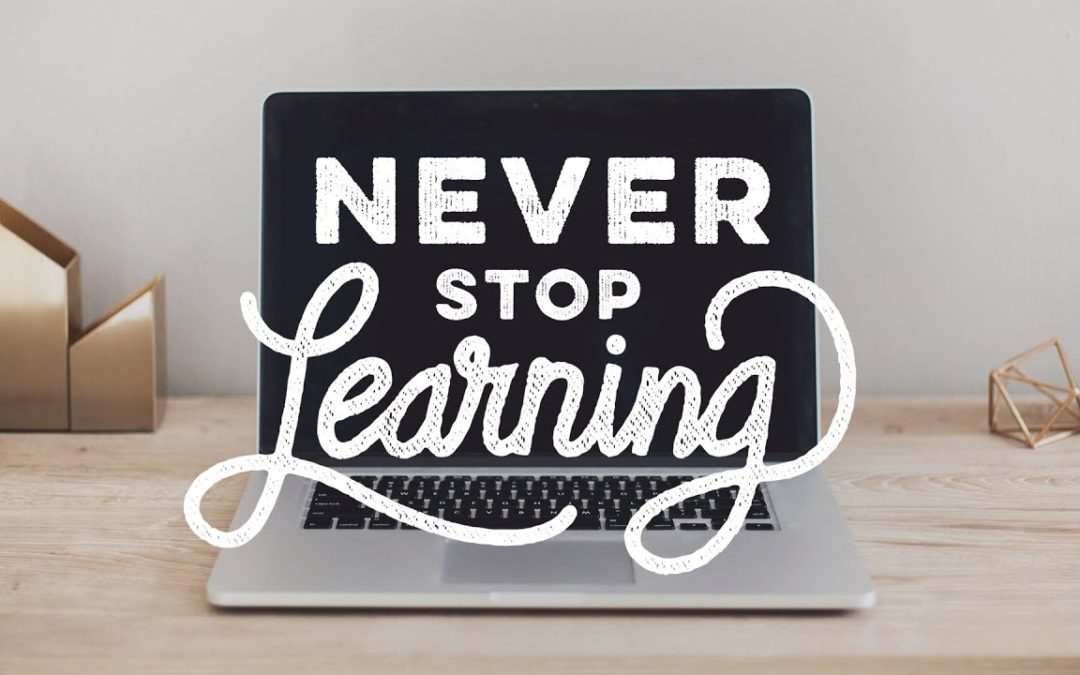
by SaleZAdmin | Oct 26, 2018
Have our busy lives stopped us from pursuing the need to learn, study, question and query?
Seriously, think about it. When last did you really learn something new or acquired a new skill?. It seems in today’s world, information is so readily available that we tend to ignore or neglect it.
When did you stop learning?
Growing up, w
ohne-rezeptkaufen.com
e are surrounded with learning environments. Some environments we like, some we don’t. Some are required for us to survive, like learning to crawl, walk and talk. Most of us go through the social experience of schooling. Even if you liked school, friends or homework, you were placed in an environment of permanent learning. You might have even fought against some of it. But when most people leave school, they also leave their entire controlled learning environment.
If you are one of the lucky ones, your support system such as parents might place you in another environment such as college, but inevitably you will finish that too.
So how do you retain your thirst for knowledge?
Should you learn because you build your career?
I have a theory about this. The answer is No. Your career comes second. Employers may want to see qualifications. After all, a qualification, at least, shows that you had some commitment at some time to further your skills. Studying only for a career will soon stop, especially if in your mind you have reached your goal of getting a job. Then getting your dream job is even worse.
Studying, edu
cation or learning?
Here my theory is simpler.
Try and figure out how the world works. If you think about it, most of the reasons for studying or learning is answered by the need to understand it.
We already have a fundamental need to understand even the basics in life based on ‘why?’ Why do I need to crawl, walk and run?
My theory is that our ultimate aim is to continually figure out how everything around us works. Things that we ourselves, other people or even nature created. We watch media on how things work. If we want skills and don’t have them, we ask someone that does, get them to advice or consult. Tell me how this works please? Can you fix this for me, I don’t know how? I’m not taking about mechanical things, I’m talking about everything.
How does your wife, your car, the internet, a ball, wood work, gravity, anything and everything work?
My view is not scientific, religious or theoretical. Perhaps more a basic requirement, we call ambition. You are truly blessed if something or someone instilled in you the need to figure out how everything in the world works. And you never stop. Never stop asking. Never stop querying.
If you figure something out, put it in your toolkit and move on. Remember how maths at school became more and more difficult? Learning one thing leads to another. If the next thing seems like the end of that topic or interest, there is a new topic around the corner. People have mostly lost the ability to problem solve and are now the slaves to the information around them. How many people post original information on social media in relation to how many simply repost someone else’s content they themselves found interesting?
I will leave you with this final thought. I think the biggest mistake adults make is thinking they must learn or study for career reasons. This I think is why we as adults run out of ‘learning steam’. Studying for a career, job or similar skill and knowledge will get you that job, position, title or money. But, then what? Then you open your eyes, middle aged, surrounded hopefully by what your reasons were before, but the world still doesn’t make sense and you have no real survival skills. Without having retained the ability to learn, figure things out or problem solve, you are left to your own limited devices and dependent on others
I think you need to learn constantly to figure out how everything works. This will make you a student of life. It will paint your existence with colour, happiness, peace and hopefully contentment. You will see the negative for what it is. You will recognise the bad and place it next to it’s positive.
It will balance your life and by understanding more and more about how everything works, you will be able to place yourself amongst those other complex working mechanisms in our world and start understanding the beauty of where you fit in.
Never stop questioning and learn how everything works.

by SaleZAdmin | Oct 26, 2018
“I think the challenge in life is to not plan too far ahead, but also not plan to soon or not at all.”
If you are planning too far ahead you will soon realize life and the universe have other plans. Planning too soon creates a feeling of claustrophobia and lack of overall vision which leads to feeling directionless.
My solution is to identify the minimum and critical performance required from a particular direction and path. Don’t plan beyond this direct target in front of you, beca
use the outcomes will fall away if the criteria aren’t met and you will have wasted your time.
Planning too far ahead goes against the Chaos Theory, and we all know that Chaos rules…
buy-levitra-usa.com

by SaleZAdmin | Oct 26, 2018
Most people train in the field of entrepreneurship out of necessity. Some get formal training and some learn by the seat of their pants. I am one of those that learnt as I went on, making mistakes and paying the price. I have always found it interesting that the courses and incubators train entrepreneurs to look forward, which is what they should do. Most training involves developing exciting student skills and talents to building businesses and making the most out of opportunities. Count yourself lucky if you can get an experienced entrepreneur with failures behind him as your mentor. After all the excitement of working for yourself, building something, seeing the results and feeling the possible freedom that entrepreneurship brings, there is a dark side. Experienced entrepreneurs don’t talk about it. Even I am hesitant to do so. It might be because of ego. But I think it’s got more to do with the feeling of failure that all entrepreneurs try and avoid like the plague.
The dark side of life is there to balance the positive, so it’s not all bad.
Entrepreneur training teaches you how to build and persevere, but also provides statistics to show why you must persevere.
Statistics; let’s say, of 1 in 10 opportunities will work. The dark side is what happens with the other 9 failures. I called this the scorched earth principle.
Example: Entrepreneur Training teaches the student about initial funding, sometimes called Angel funding such as friends and family. The dark side raises the question: What happens to their money after your failures? Especially considering most of them trusted in you and your plan and aren’t business people. Most of them are salary drawers and slaves to the world without the capability to recover the amount you used in their lifetime. What maturity of thought did you use originally to use their funding and were you willing to say No to their money, despite desperately needing it for your business venture?
Closing down a business that doesn’t make money is surely the hardest thing to do, ever… and you will have to do it voluntarily, many times and manage the consequences
Be ready to leave a scorched world of debt and relationships in your entrepreneurial life. Be very ready to liquidate, sequestrate, and start literally from zero without money, bank, debt, credibility, friends or family… only your experience.
To stand up again after each total loss is as hard as starting to walk as a baby. You WILL need someone’s help much like a crutch to get up, a little bit at a time.
What will I
ohne-rezeptkaufen.com
have to show for this ‘dark side event’?
Something I always think about is how different my life would have been had I had a business mentor. Someone who played open cards with what really happens. Yes, I know young people generally starting out won’t listen. I would have liked to know in the beginning, what would be the typical personality traits of an entrepreneur. It’s not your product, method or idea alone that will make money and success; it’s
who you are, your personality and talent. I have compiled this short list of what I think the natural skills of an entrepreneur would have to be as a minimum to succeed.
Your skills should include:
-
- never-ending perseverance to make things work, sometimes fail, but always stand up again
- a thick skin to handle the negative feedback from all corners
- unlimited creativity and problem solving skills
- stable personal relationships
- open-minded to receive support from the weirdest sources.
What is the experience like then?
As much as every entrepreneur dreams of the freedom that success and wealth can bring by doing his own thing, there are challenges. As this post is not about the good stuff and the good life of freedom for the entrepreneur, i will expand on the impact of this Dark side of the spectrum. Oh the doom and gloom!
- You will constantly fight the psychological challenge of doubt and your own daemons such as self-confidence, ego, and many. I believe an entrepreneurs life is a tough life and survivable by only for certain personality types.
- You WILL always have to smile, suck it up and turn the other cheek.
- You WILL learn to always put business first, meaning you can’t say what you feel or want, you’ll learn to say what’s needed to get the sale.
- You WILL learn to be tactful in the face of tactlessness
As reward, I think the biggest benefits are that you will have a story to tell. You will have survival experience. You will have a life worth handing over to your kids.
A final word of caution. Be careful taking advice from entrepreneurs who haven’t felt this dark side and survived it. I found the worst mentors to take advice from are those that have only had successes. Or even worse are those who’s first projects and business were successful. They still have much to learn about being a successful entrepreneur over a long period, revealing a more yin yang view of this lifestyle.
Always ask a mentor about this dark side and pay heed to his advice. We hate talking about it, but we know these experiences are defining in being an entrepreneur.

by SaleZAdmin | Oct 26, 2018
Have you ever heard of chaos theory? Maybe you’ve heard of the butterfly effect? You may have seen a movie reference to it, or perhaps a university professor? Chaos theory is not for academics. Chaos theory is not a way of thinking, a religious principal or a viewpoint. It is a reality. It’s a way of seeing the complex systems we live with daily and how to better understand them.
Have you ever missed an event, accident or opportunity and thought if only X hadn’t happened earlier, I would have experienced Y or Z?
Chaos theory is quite simple. Anything that happens now is a complex result of many things that happened before which cumulatively result in your event. You know the saying ‘hindsight is 20/20’? Looking back, you can pinpoint events that led up to what’s happening now. Looking forward, however, it is not that simple. If something happens, or a decision is made, actions taken or anything eventful, left for long enough to mature, will result in another action seemingly unrelated. We can also call it nature, balance or fate to name a few. The best one for me is plain ‘shit happens’!
Humans strive for control to predict the outcome
Understand that chaos theory explains almost everything that occurs. Any event that happens is a result of unlimited events before it. If we were able to predict events, then we can control the outcome. In order to predict the outcome, humans will create their own surroundings under their own control in order to know the outcome.
Why would we want to control everything?
No, this is not a q
buy kamagra 100mg
uestion of making money or gaining power. Humans have anthropologically needed to control outcomes in order to survive. We needed to understand whether to control crops and food. We needed to create our own infrastructure, under our control in order to control the things around us such as safety. I can give you examples. We created roads through nature to control our travel, time and order of movement. We created kitchens with ovens to not be reliant on fire in a cave for food. As humans we realised by creating our own solutions, we limit the influence of other events on our lives and thus have better predictable outcomes.
But they clash, chaos and control
Yes, they do. Chaos theory is the way the world works. It’s how nature and the universe function and it is a completely natural result of events. The events are so complex from their own eventful source that as simple minded humans we cannot see the complexity of the prior event and just end up calling it random. But is there truly a random event? I don’t think so. Thinking about it, anything you consider to be random was a result of previous events leading up to it. We can’t see all the events leading up to it and this goes into our ‘random’ basket.
So why is this at all important?
Chaos theory as a principle doesn’t change anything. It may not even answer anything. It is a way for us to understand however, that nothing is random.
We can control our environments to have a more predictable outcome.
That’s how humans gained some level of control which allowed us to grow outside our random caveman lives. We took control; we created predictable outcomes and environments. If nature didn’t provide light and fire to cook our food when we were hungry, we created our own fire. When the valleys were too rough for the ox wagons, we created roads.
This gives humans time to learn, safety on all levels to expand
But chaos theory is still driving everything because our existence is still a string of events.
I have come to realize that’s probably why most of us are caught off guard if something unexpected happens. An accident maybe, a short notice promotion or an a unexpected reward. If you think about it, it wasn’t unexpected in the eyes of chaos. It was a result of other events and timing you just weren’t aware of prior to your ‘unexpected’ event.
But can’t we control it?
No we can’t. We can merely string together the first level of events to understand why something happened. It’s fascinating to think back on something that you experienced to single events that started at some point previously. These all culminated at a later stage, resulting in your experience.
Using chaos theory may help us answer questions about things that happened. Why I got divorced, why someone died in an accident, why my business is working and another similar business isn’t working.
And if it all becomes too complex, you can always fall back on ‘shit happens’

by SaleZAdmin | Oct 26, 2018
Is marketing into new industries like fishing?
Marketing into a new industry, product or venture is like fishing in the sea. For those who have seen these typical island reality survival shows, fishing only starts when the food has run out, and the hunger sets in. Fishing in principle allows you access to an ocean of sustainable food, but even if you are lucky to salvage a fishing hook or net, this will take many failed attempts before you catch enough food to survive.
Standing on the beach, you know the fish (customers) are out there. They want what you have, but how do you lure them in?. You have a rod and a hook with bait, which you hope they might find attractive. You don’t really know if all fish eat wiggly worms. You spend some time and energy sourcing these tools, but do you fish from the beach, the cliffs or do you cast in the deep or shallow waters?. Where are they? How do you begin?
Some logical advice is to ask a local fisherman or observe them closely. You don’t ask just anyone, rather ask the person fishing with a rod.
So your local fisherman gives your assistance, as they always do. “Stand on the rocks, use
Compra Minocin Online
that spot, and cast deep”, is what he says. “This is how we do it in this area (industry or product). Also, use this bait because we have this type of fish”.
Now you begin. Casting deep and far doesn’t bring in the fish, but doing it for some time, changing bait, technique and the time of day, and you start getting bites.
While you feel the fish nibble, you need to slowly pull harder to have the hook take hold and then gently reel them in. Any tug or sudden change in movement and they will fight until they are free again, in this case, gently does it perfectly.
When your catch has left the water, you have to make sure it is handled with care or it will jump and wiggle until it falls back into the water.
Unlike catching fish, however, we don’t kill and eat it, we rather feed it well and release it again although sometimes a customer might deserve a knock on the head!.
There are many customers in the sea of all sizes and shapes, likes, dislike
s, preferences, issues and opportunities. You won’t know this if you don’t start fishing. Fish the right spot, with the right bait, learning from locals and pulling out.
Happy fishing!
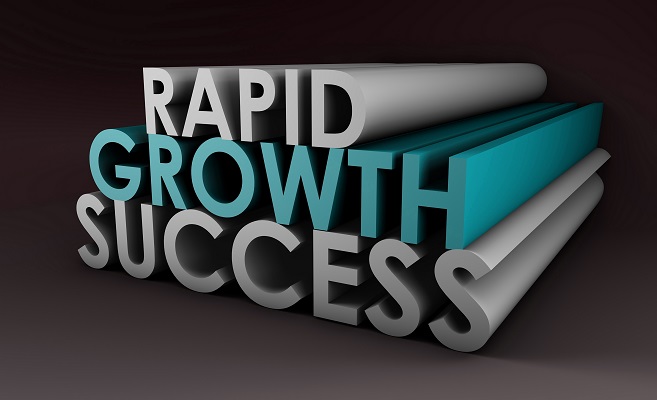
by SaleZAdmin | Oct 26, 2018
Many businesses have the potential to grow rapidly. It is only when the demand for its products is limited that no growth is possible, but in many cases, even this assumption is not valid.
A business that has the potential to grow rapidly could have an external or internal limitation. Too many orders or not enough orders. A delivery capability that runs like clock work is essential in both these cases, to ensure reliability or availability, leading to more volume and better prices.
The characteristics of a good clock are:
- It works by itself
- It always works
- It is not fast or slow – it is on-time.
The reality of delivery in organizations is much more complex than a clock. The cause of complexity is the existence of variability. Nothing happens exactly as predicted. This is the major challenge of working like a clock. Can we build a delivery system that runs like clock work while the mechanism does not perform as predicted?
The key is to protect against what we do not know in order to know what we can deliver.
In his article “Standing on the Shoulder of Giants” dr. Eli Goldratt synthesized 4 fundamental rules for every delivery system based on the most successful delivery systems in history, Henry Ford’s assembly line and Taichi Ohno’s Toyota Production system. He verbalized these rules as:
- Improving flow (or equivalently lead time) is a primary objective of operations.
- This primary objective should be translated into a practical mechanism that guides the operation when NOT to produce (prevents overproduction).
- Local efficiencies must be abolished.
- A focusing process to balance flow must be in place.
Every delivery system that runs like clock work complies with these rules.
Operationalising these rules can be simplified when done in terms of a framework of Planning, Execution and Feedback.
Buy Nolvadex UK
Planning is necessary because time is required to get ready for execution. We are ready when the protection required to deal with the variability during execution is in place. Without complete readiness the clock cannot work. Planning includes a design phase in which we define the flow and decide which buffers are required where as well as sizing the buffers. The first step of building the clock is to put this new mechanism in place.
Execution is activating flow on-time as required by the buffers. Not faster or slower, knowing that flow will be faster or (mostly) slower after activation. A priority system based on the status of the buffers is now necessary as the mechanism to provide constant feedback whether flow managers need to take expediting actions and whether they need to change the size of the buffers.
These mechanisms enable a system most of the time to work by itself to predictably deliver on-time. Management intervention is still required but only to drive focused interventions to balance flow more and more leading to reduced protection, more reliability or availability that can be leveraged for rapid growth.
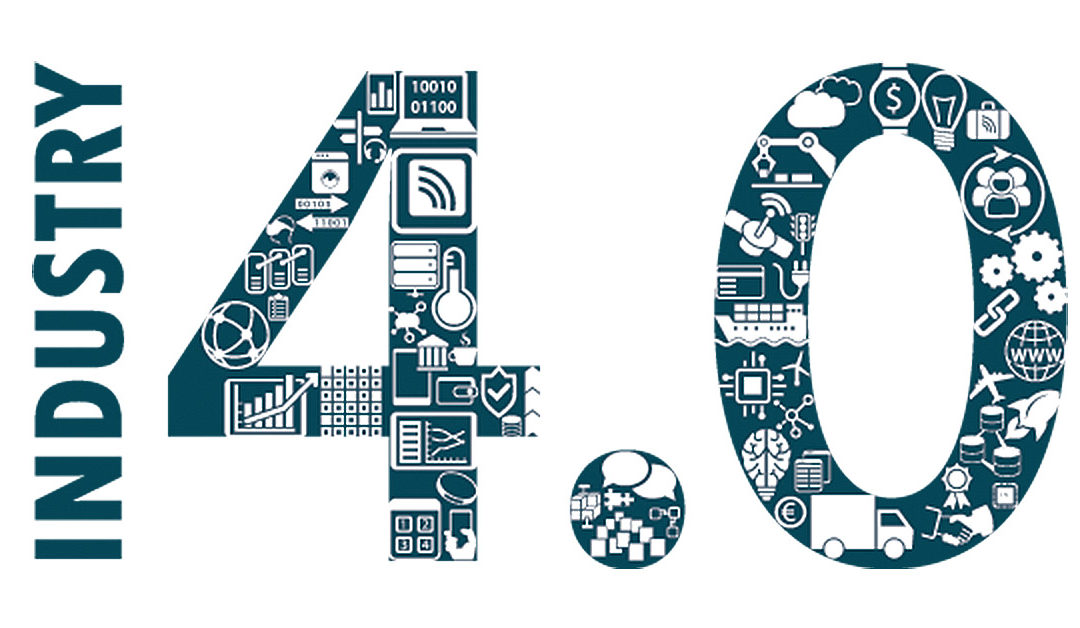
by SaleZAdmin | Oct 26, 2018
Liken this situation with that of the Titanic
, setting out on its maiden voyage. Captain Smith was given several warnings regarding the danger of icebergs which he chose to ignore. We can use this analogy today, where business leaders are in the same situation, being given warnings that a dramatic impact will alter the sailing of their business vessel. The next 4 years will see businesses being affected by major shifts in these turbulent times where awareness will be critical for companies to avoid being blindsided by change.
What is the 4th Industrial Revolution?
The 3rd industrial revolution started in the middle of the last century with the age of digitization. Building on this is the 4th revolution where digital platforms are no longer in isolated silos but rather a bleeding of technology between different mediums. The physical environment bought us autonomous vehicles and 3d printing which connected to the digital world. The digital space highlighted the Internet of Things where physical products are tied to the internet either via sensors or directly. We have virtual reality, augmented reality and the sharing economy like Uber and AirBnB. A recent article made known that Uber is sharing data with 4Square, a perfect example of entities built in isolation now meshed together for the benefit of both. This sharing of resources is in essence creating a perfect storm.
The World Economic Forum held a recent conference titled “Mastering the 4th Industrial Revolution” bought about by people in the tech industry raising the alarm, similar to that of other ships around the Titanic, that businesses need to ready themselves for a major technological disruption. An example of this in the field of Artificial Intelligence is the creation of Amelia who is designed to work in a call centre environment. In its first month it was able to assist 1 out of 10 calls, in the second month 6 of the 10 calls. Now it is close to achieving 100% successful assistance of incoming calls. This means 200 million people working in call centre environments across the world are likely to be replaced.
Siri, the Apple AI is ano
buy cheap kamagra oral jelly
ther powerful example. Its creator has also released Viv, designed to fulfill a personal assistant function. The sounding of the alarm that the convergences of these technologies are causing a disruptive force across the world, is self evident. The World Economic Forum also placed the displacement of jobs under discussion. Administrative work will see a big change in the next 4 years where a possible 7 million people stand to lose their work within this field.
What is the impact on business?
The World Economic Forum identified a future skills shortage in business based on data analytics and data science. The reason for this being that the technology revolution is allowing businesses to generate large amounts of data by means of digitization. If efficiently analysed, it will allow leaders to make better business decisions, thus the requirement for skills to do this.
Most companies already make use of an element of technology within business, this is set to escalate dramatically, not only as technology functions but with regards the product itself. Take the mobile device as example, fully connected with amazing functionality from humble beginnings of making a call. Every product, a chair, cup or fridge will be able to connect to the internet directly and via processes. Imagine the magnitude of this shift?
It is becoming clear that certain core competencies will be required in companies to survive this technological shift.
5 Points every organisation should seriously consider
- As a result of data being collected via digitization there is call for a focus on how companies can clearly see themselves as a result of the data. It is similar to the 2MP cameras previously available, where a zoom in to get a better view of a picture would cause blurring. Now we have better cameras that allow us to zoom without losing focus on the picture, just like the depth of data would allow us now. The question is how to exploit this data for the best view.
- Companies will need to set a default assumption – there will be a deep digital disruption and it will happen to all industries.
- Start brainstorming what could happen to your physical product as a result of digitization, what will this new business model look like? How can sensors be used to gather data?
- Consider the core competency of data analysis as highlighted by the World Economic Forum. Companies will be able to employ people anywhere in the world to fulfill this task, as geographic location will no longer be a stumbling block.
- Plan for instability. Leadership must accept that change is something that is going to be with us for a considerable time, going forward.
These 5 considerations will dramatically assist an organisation to get their heads around technological shifts and how to stay relevant in a time of massive disruptions. Companies must find a way to plot their course in this disruptive technological landscape.
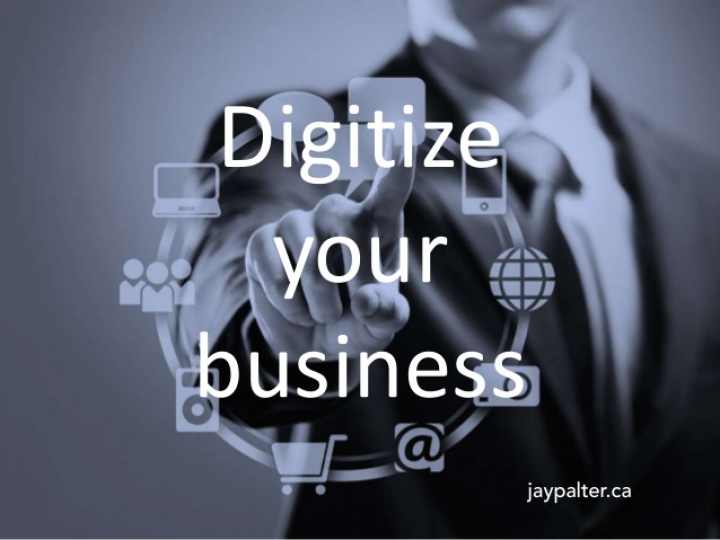
by SaleZAdmin | Oct 26, 2018
Let’s explore the concept of digitization. When we refer to the digitization of a business, w
e are talking about more than having a website, a Facebook presence and an e-commerce site. Digitization refers to taking every process within a business and redefining them with the use of technology where storage takes place in a cloud environment. We like to use the example, if there was a fire tomorrow, would your business be able to continue functioning the next day? The same is true for staff leaving an organisation. Do they take the knowledge of the company away with them, or are there processes in place for this intelligence to be retained in the business? This problem exists both within small and big business, and wi
kupbezrecepty.com
th current rapid technological change, the danger exists that they could be left behind.
What are the biggest obstacles?
A general understanding of technology within a business begins with the drivers of the business, whether the CEO, CFO or Chairman. Leadership must drive with the appropriate mindset if they are to cope with the changes and steer the organisation into the clear. This understanding involves amongst other things, the understanding that digitization takes away risk within the organisation. Digital transformation essentially starts with leadership transformation. When digitization becomes core and is woven into the DNA of the concern, this will result in a much bigger success for the business.The forming of a digital department with the objective of unifying the entire companies digital initiative can move the company beyond a situation where information exists in silos to the formation of a congruent goal.
The third piece of the puzzle for consideration is the people and skills within the organisation and how they fulfill their tasks. South African businesses need to up-skill or find replacement skills to stay ahead. Employees are in a position where they need to self-educate to get comfortable with technology and gauge how this can affect their jobs. Tuit has structured itself to offer training, even the Facebook Live sessions we stream every Thursday is aimed at educating our clients with regards technological changes. Tuit Training assists with best of breed software and how to digitize with the use of a CRM system. The use of Outlook is a risk as the client relationship information exists in individual pockets, using a CRM creates a central hub where all client knowledge and communication exists for use by many individuals.
Taking a business into the 21st century will be a little painful but the obstacles are not insurmountable and the rewards are worth the effort. Keeping an open mind is critical to successful adaptation. Microsoft is a great example of an 80’s company that has been very successful in adapting themselves to new trends.
Recent research has shown that the most important skills for the next working generation will be to be digitally literate. We have launched an initiative known as Coding for Kids, where young children can learn how to code. The launch will take place in September and the first intake will be in January 2017. A similar initiative will be launched for adults, not to change careers but to aid in literacy and so doing, break barriers.
This article was put together from excepts on our Facebook Live video, where we conducted a Dual Stream Video, we believe to be a first in South Africa.
Please click HERE to view the video.
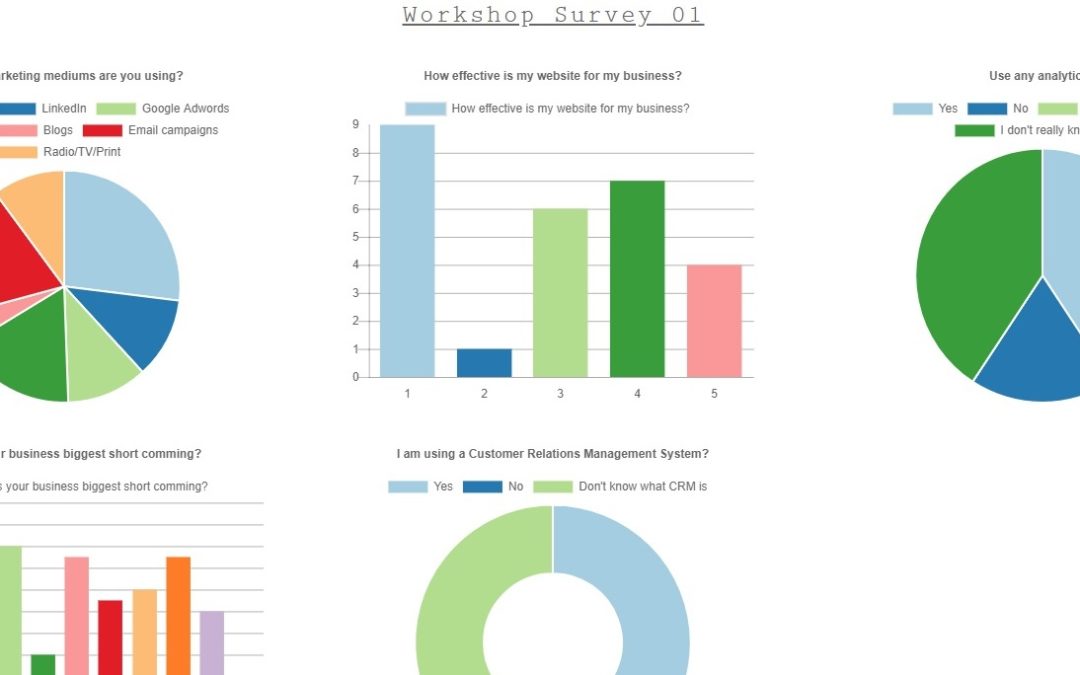
by SaleZAdmin | Oct 26, 2018
What tool can help us measure the discretionary effort of our workforce?
Summing the metrics for activities ensures no lead is left behind and sales cycles are not unnecessarily longer than they need to be. Companies fail to create connections with their employees and customers. A CRM (Customer Relationship Management) system can bring clarity and develop strategies and communicate more clearly (internally and externally). If used correctly
antibiotici-acquista.com
, it can help guide us to act with purpose, on purpose.
Do you Know all the answers?
The CRM system can also allow you to track the status of the lead as it works its way through the sales cycle. Was the prospect adequately qualified? Was contact made on time? What was the outcome? Getting the answers to these questions and providing effective technology is critical to a successful integration of marketing systems with a CRM.
The best-planned campaign will suffer if you cannot methodically execute upon it. Keep your campaigns on track; an X2CRM software provides real-time visibility to the status of every target population contact (or possibly groups of contacts). The customer management system can remind you when to initiate follow-ups (or in the case of emails, it can distribute them automatically) and help you maintain the marketing schedule.
Do you have all the information needed?
CRM holds what every marketer needs, like contact data, valuable customer insights. Marketers use this data to personalise and target all of their communication. Without a CRM to organise this information, it would be challenging to segment any contact database. Any functional CRM can create custom user-defined fields such as Title, Interests, Industry, Favorite Color, Favorite Sport, and so on. Salespeople often use this information to build deeper relationships with their clients and tailor their pitches. Marketers can use this information to send these contacts relevant content to help re-engage and push them through the funnel.
A well-run Customer Relationship Management system can help you avoid all the common challenges and improve campaign response rates, conversion rates and marketing budget.
My advice is to get the right tools to help you do your job more efficient.

by SaleZAdmin | Oct 26, 2018
Change is hard. Really hard. Your brain is equipped with defence mechanisms designed to shoot down anything that might keep things staying exactly where they are. It’s surprisingly easy to get through life and make a career out of being average… your resistance brain would prefer it if you did.
Life-changing journeys take us from the familiar to the new, the exciting and the unknown. When the pain of where you are being greater than the fear of where you are going, you will change and towards the direction of your dreams.
Time, not
buy kamagra 100mg
money, is
your asset. Use it to advance your career and life whilst you still have it and get more training and qualifications.
Leaders learn by doing. Leaders learn through purposeful practice. One of the most powerful ways of learning is through stretch assignments, these are assignments that demand we step outside our comfort zone.
Challenging assignments can include the following:
- The expansion of roles and responsibilities
- An increase in decision-making authority
- Dealing with change and diversity
- Working on new and innovative projects and initiatives
- Building new teams and capabilities
- Turning around a troubled project or business unit
- Leading cross-functional teams
- Working in a different industry or country
All the above assignments challenge and stretch us, they challenge our thinking and demand that we develop new skills and behaviours for success.
Have you ever experienced any of these challenges when stepping outside your comfort zone? If so, feel free to share your challenges and experiences with us.

by SaleZAdmin | Oct 26, 2018
Turning around a struggling business is far from easy.
As a business owner
koupit-pilulky.com
, you also understand that business can go up and down. So, what can you do when the company is down, and you find yourself with little or no prospects in your pipeline?
Recommended article: Enterprise Risk Management
By implementing specific practices for struggling businesses can help attract more clients and increase your sales. Here are a few suggestions that may offer an option to your financial situation.
Write a Business Plan
Companies that write and follow well-thought-out plans are much less likely to get into trouble, but when you’re already in a problem is when you need a plan most of all! Turning around a business takes trainloads of both time and energy. But it also takes a plan! I have yet to hear of a company succeeding without a business plan.
Be a Leader
As a small-business owner, you can help lead the way out of the struggle when you have experience with management skills; you’ll be able to make informed decisions and guide your employees.
Review Your Marketing
Recommended article – The forgotten son of digital marketing
Put an Internet marketing business into perspective. You need to see how it fits into the larger world of “business.” Use the internet and focus on existing clients first; get more out of them. Understand what worked and what didn’t, this will help yo
u to make some critical decisions, such as:
- Stop wasting time and money on activities that are not delivering a return
- Come up with ways to improve events that are showing a degree of success
- Continue with activities that are working well
- See the gaps! What haven’t you tried that could make a difference?
It is essential to think about how you’re going to track your progress, and this could be through profit, some items sold, or any metric that shows your growth. Set goals detailing where you want to be in a specific time, and create a plan of action. What are you going to do if you get X results? Keeping track of your progress is crucial. Analysing your results help create more successful strategies and therefore better results.

by SaleZAdmin | Oct 26, 2018
From a career perspective, losing your Job is probably one of the worst things that can happen, especially when it’s not your fault and unexpected.
Recommended Article to Read – Why your tertiary qualification is not enough
Face Reality
There is no point in pretending the rejection doesn’t hurt. When you did have a job,kamagra oral jelly usa
f=”https://www.tuit.co.za/blog/want-make-career-average/”> the routine of going to work every day created an illusion of stability for both you and those around you. Even if you hated the thought of going to work, the mere idea of going into work gave you a sense of purpose. Being out of work, and not knowing what the future holds might cause even more anxiety than having a job you hate.
Time To Think
What bad habits do you need to change? Then pick yourself up, dust yourself off and move on. Everything you do during your career can utilize your future, including social-responsibility projects, interests, and hobbies, so nothing is ever lost or in vain. Every time we learn a new skill, we be
come much more marketable.
Take Advantage
Losing your job can be an excellent time to push yourself into a different career path. You now have the opportunity to create a new life for yourself. We have a competitive job market, and if you’re not qualified, your chances of being considered are not that great. The secret is using the time you have to your advantage and development knowledge and skills, understand your values, strengths, natural talents, passions and figuring out how you define success and will then help you to make a discussion on what career path you want to take. Learn with no expectation and no agenda. Only under those conditions is where one’s purpose can emerge.
Whatever you do, we wish you the best of luck in building a new career and a new life.












